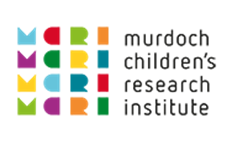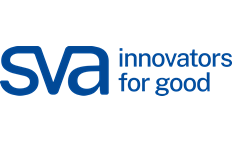Publications and tools
The research arm of RSTO aims to uncover and share evidence-based strategies and solutions to address the unfair and avoidable differences in health outcomes many children and families face, with a focus on improving service quality, quantity, and participation.
-
 Research snapshot Dec 2024
Research snapshot Dec 2024Improving early education: evidence for what works
School leaders need to know where they should focus improvement efforts and which strategies have positive effects on student outcomes.
Read more -
 Research snapshot Dec 2024
Research snapshot Dec 2024Supporting data-based decision making in place-based initiatives
Place-based initiatives can drive more equitable outcomes for children and families by collecting and using consistent lead indicators for early years services.
Read more -

-

-
 Other Nov 2023
Other Nov 2023Using a continuous improvement approach to improve participation in early childhood education and care
This case study highlights RSTO's partnership with Gowrie Victoria to help identify opportunities for improving early childhood education and care participation rates at Gowrie sites in Victoria.
-
 Research snapshot Sep 2023
Research snapshot Sep 2023Addressing inequities in access to antenatal care
This research snapshot provides insights to help health practitioners, health services managers and policymakers optimise antenatal care for all women.
-
 Other Jun 2023
Other Jun 2023Towards equitable early years services and systems: Restacking the Odds
This webinar recording provides an overview of Restacking the Odds, the evidence behind the approach, and explores how lead indicators are enabling services to better meet the needs of children and families—particularly those experiencing disadvantage.
-
 Other Jun 2023
Other Jun 2023Scenario 3: Improving early childhood education and care attendance
RSTO’s collaboration with an early childhood education and care provider reveals that children experiencing disadvantage are less likely to attend ECEC, and that some centre’s are experiencing low participation. Using RSTO’s data platform and Learning Action System, the service provider can implement solutions to address barriers and enhance participation.
-
 Other Jun 2023
Other Jun 2023Scenario 2: Delivering high-quality parenting programs locally
RSTO’s partnership with a community initiative identifies a need for high-quality parenting programs locally. Using RSTO data, the community initiative secures enough funding to set-up additional parenting programs to support parents of children with behavioural concerns.
-
 Other Jun 2023
Other Jun 2023Scenario 1: Improving family violence screening and support in pregnancy
RSTO’s partnership with a maternity hospital helps to uncover low rates of family violence screening among pregnant women. Strategies are put in place to enhance screening rates and ensure that women experiencing family violence in pregnancy are connected to available services and supports.
Restacking the Odds is a collaboration between the Centre for Community Child Health at the Murdoch Children's Research Institute, Bain & Company and Social Ventures Australia.
RSTO would like to acknowledge the support of project partners the Paul Ramsay Foundation and PALO IT.
We acknowledge the Traditional Owners of the land on which we work and pay our respect to Elders past, present and emerging.




